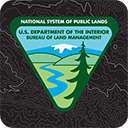Wild horse and burro adoptions remain important programs for the BLM
By Derrick Henry, Public Affairs Specialist
The Bureau of Land Management manages and protects wild horses and burros on 26.9 million acres of public lands across 10 Western states as part of its mission to oversee public lands for various uses. This work includes adoption programs, which have placed more than 240,000 wild horses and burros into private care since 1971. Many people have found it rewarding to adopt or purchase a wild horse or burro.
This important work continued in FY 2021, part of which is highlighted in the BLM’s 2022 Sound Investment brochure. The brochure provides a snapshot of how authorized use and management of BLM-administered lands supported $201 billion in economic output and nearly 783,000 jobs across the country in fiscal year 2021.
In BLM’s Eastern States, the agency placed 2,588 wild horses and burros into private care, which is nearly 35 percent of the 7,369 animals adopted bureauwide. BLM New Mexico, which oversees the program in Texas, Kansas, and Oklahoma, placed 1,920 horses and burros into private care.
The BLM maintains a network of permanent off-range corrals and hosts hundreds of off-site adoption events each year to find homes for excess animals. Brought from public lands, many of these animals have become excellent pleasure, show, or work horses.
The BLM conducts adoptions through its Adoption and Sales Programs and successful partnerships with organizations across the nation. Qualified adopters must meet requirements for owning and caring for a wild horse and burro, including specific facility parameters to ensure the safety and health of the animals. The BLM’s Wild Horse and Burro Program is run in accordance with the Wild-Free Roaming Horses and Burros Act, passed by Congress in 1971.
BLM employees take government policy and turn it into real work on the ground. This article is based on information from the BLM’s 2022 Sound Investment brochure. The brochure, which uses fiscal year 2021 data, highlights the various activities that take place on public lands, and their contributions to the national economy. In fiscal year 2021, authorized use and management of BLM-administered lands supported $201 billion in economic output and nearly 783,000 jobs across the country.
